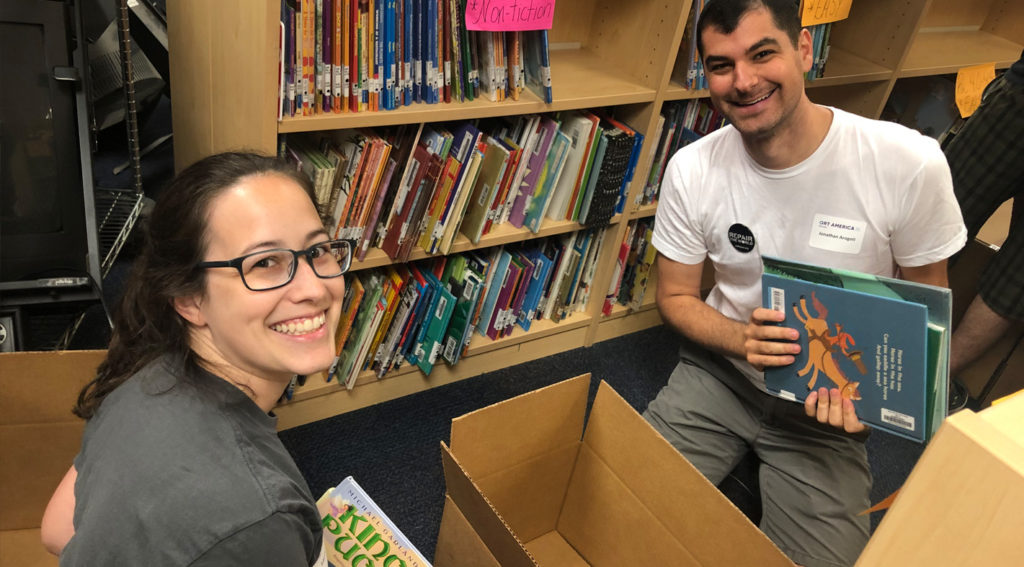A Mexico City Night Different From All Others
The Shabbat candles flickered, and chicken soup umami wafted from the kitchen.
After a week of preparation, I peered down the makeshift dining table at my roommate Diana and my twelve guests. None were local to Mexico City. We were all transients, strangers in a strange land. We were a mix of Jews, Christians, Catholics, and atheists. A mix of Americans, Mexicans, and an Argentinean. A mix of East and West Coasters, Midwesterners, and Southerners. A mix of black, brown, and white.
All twenty- and thirty-somethings, our colors and backgrounds blended like the ingredients in the charoset, each one highlighting the other, making for a sweet combination more than the sum of its parts.
Diana and I—the Jewish contingent—introduced ourselves, explaining that seder is a storytelling process followed by a festive dinner. That we would lead the way but we hoped everyone would participate. That we wanted people to question, and if we couldn’t answer, Google surely could.
We began with a round robin sharing our placecards. In addition to our names, each held factoids about a Jewish community around the world.
“I’m Macarena,” my Argentinian friend announced when her turn arrived.
“Hiiiiiiiii Macarena,” we all responded in chorus.
“What do Hungarian Jews place on the Seder table to represent the precious gifts given to the Israelites as they departed Egypt?”
We all looked around dumbfounded, until, in Spanish, she gave us a clue. “Sería un buen regalo para mujeres. Seguro que todas las mujeres aquí tiene… (It would be a good gift for women. All the women here definitely have some…),” she added, winking my direction.
“Chocolate!” we shouted. “Wine!”
“Noooo…. Joyas!” She shared gleefully. Jewelry.
After we made the rounds, Diana and I shared a bit of the history of the Jewish community in Mexico. We explained that we hoped tonight would be an opportunity to share diverse stories of struggle and liberation. That we would learn together from the story of Exodus, and explore its relevance today. “We are not merely telling a story here. We are being called to a radical act of empathy,” I read from Jonathan Safran Foer’s New American Haggadah.
We embarked, popcorn-style, around the table, trading off reading mostly from a racial justice Haggadah that quoted Fannie Lou Hamer, Carl Sagan, Harriet Tubman, and Bryan Stevenson, along with the Torah. Diana’s grandparents looked down at us from their crystal frame on our TV console, and my grandparents’ loaned Maxwell house Haggadahs peered up from the table, stained and bent from decades of use.
When we arrived at the first handwashing, we read from a feminist Haggadah about the role of women, and water, in the Exodus story. We invited our guests to wash the hands of the person to their right, but not without first asking for consent. They eagerly complied, each one looking into his or her neighbor’s eyes—some for the first time—speaking in hushed tones, then gently pouring water over their neighbors’ hands.
We moved from the handwashing (urhatz), to eating a green vegetable dipped in saltwater (karpas), to breaking the middle matzah (yahatz).
Why does the Haggadah urge us to feed the hungry at this point in the seder, when it’s already more or less too late, we asked ourselves, with the help of Safran Foer. “Could it be teaching us that this night, in one crucial way, is just like all other nights? On all other nights we eat to satisfaction without a thought for the hungry stranger. Tonight, we speak of hunger, but do nothing to alleviate it.”
We reflected silently, asking ourselves why that is so, and what we should do differently.
Then there were bowls of matzah ball soup with cilantro and jalapeño—a nod to our host-country. A cucumber, tomato, avocado and serrano chile salad. Fish with mole-inspired rub. My mom’s sweet and sour brisket. Flourless chocolate cake. Lemon bars. Matzah toffee rocky road bites.
And then, the great hunt for the afikoman commenced, Vanessa emerging triumphant from beneath the table. We followed a rich meal with those final dry bites, and we read:
“[The afikoman] embodies the faith that there is always a way, concealed though it might be, to make the transition from the suffering that we know, to the future that we dream…. We sit together with our great diversities of worldviews, for we are celebrants of freedom and will brook no tyranny of thought. But we all eat the afikoman together, gesturing toward a sense of the world that sustains us in our hope.”
We stood up and opened the door for Elijah, arms slung around each other. Diana and I began to sing Eliyahu hanavi, surprised when the voices of our guests, high and low, joined in the Hebrew on the second round.
As our celebration of our freedom came to a close, I silently prayed that those voices would continue to echo through our minds, sustaining us in our many fights for freedom, at least until next year.
Ryan Cohen is a Fulbright-García Robles conducting research about how to advance social mobility in Mexico City. She previously worked for the Obama White House, ACLU of Michigan, Department of Justice, and Mayor of Los Angeles. Her writing has been featured in the Huffington Post, Reforma, University of Pennsylvania Journal of Law & Social Change, and Kennedy School Review, and can be found on her website ryanashleycohen.com.


